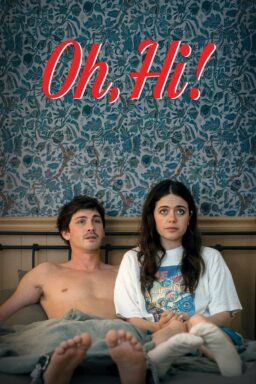1.
“‘Star Wars’ Director Rian Johnson May Bring Balance to the Force“: The Daily Beast‘s Rich Goldstein expresses optimism over the choice of “Looper” director Johnson to direct two upcoming “Star Wars” installments. Related: At Movie Mezzanine, Adam W. Hofbauer argues why the sci-fi franchise needs a Chinese director. See also: Roger Ebert’s three-star review of Johnson’s breakout film, “Brick,” in which he writes, “This
movie leaves me looking forward to the director’s next film; we can say of Rian
Johnson, as somebody once said about a dame named Brigid O’Shaughnessy,
‘You’re good. You’re very good.'”
“Every protagonist in previous Johnson films have been orphans, or their parents were nonexistent, a recurrent theme in ‘Star Wars.’ Joseph Gordon-Levitt’s characters in ‘Brick’ and ‘Looper’ both come from essentially parentless households and the brothers in ‘The Brothers Bloom’ were perennial orphans, bouncing from house to house as their various misdeeds got them kicked out of a never-ending string of foster homes. Not to mention, the brothers spend most of the movie pretending to kill each other as they perpetrate various cons, including one dramatic scene when, in a struggle for control of a gun, Adrian Brody shoots Mark Ruffalo in the heart, and then cradles him in his arms as he slowly bleeds to death (although to be fair, that time it was just for show). Nevertheless, it’s safe to say that, as the middle part of the upcoming trilogy, Johnson’s episode will feature intense family betrayal possibly by way of execution style killing. You know, for kids.”
2.

“Feminist-Minded Critical Memes Like ‘The Bechdel Test’ and ‘Manic Pixie Dream Girls’ Are Losing Their Power”: Elisabeth Donnelly of
Flavorwire deconstructs how the aforementioned critical terms rapidly went from
empowering to diminishing. See also: Critic Kartina Richardson’s brand-new site, Mata Wata, featuring photos, videos and articles galore.
“There
are diminishing, and arguably shallow, returns to saying, hey, does this work
of art have x and y? If it does, then OK, fine, it works. That’s not to say
that stuff that passes might not indeed be worth looking
at — only that that this shouldn’t be the only metric of
excellence or interest. Any mention of ‘the Bechdel test’ will invariably
number the movies and TV that don’t pass. But then, what about last year’s
Sandy-in-Space movie ‘Gravity,’ an exception, or the roundly reviled piece of sexist crap, ‘The Other Woman,’ a film with a core
of three actresses and Kate
Upton, which probably would pass. Do I need the Bechdel
test to tell me that summer tentpole films feature female characters who are
one-dimensional and mostly screaming wives? I know this. Articles still need to
be written about what’s wrong with ‘strong female characters,’ particularly in
kids’ movies like ‘The Lego Movie.’
We need more of an explanation than just ‘the Bechdel test.’”
3.

“Oliver Stone Presents“: Jim Tobler of Montecristo Magazine reports on the Oscar-winning director’s visit to Moody Middle School.
“The students were rapt with attention, asking
gradually tougher questions, more direct questions, such as ‘How would you
define a terrorist?’ Stone’s answer, not short and sweet, but protracted and
still concise: ‘You can’t answer that easily, since you have to ask why a
terrorist would take that path in the first place. Politics, economic
disadvantage, lack of education, protest against another country’s influence in
your own country or region, these are all factors. In the end, what happened at
9/11 was not an isolated, random act, but a calculated response to, in this
case, America’s dealings in the Middle East. And remember, France, Germany,
England, they’ve all dealt with terrorism over the past few decades. Terrorism,
which is basically a violent response to a perceived wrong, has been with us
for a long time.’”
4.

“Feeling More Antsy and Irritable Lately? Blame Your Smartphone“: Michael Mechanic of Mother Jones reprints and comments on the words of author Nicholas Carr and his take on “The Patience Deficit.”
“Given what we know about the variability of our time
sense, it seems clear that information and communication technologies would
have a particularly strong effect on personal time perception. After all, they
often determine the pace of the events we experience, the speed with which
we’re presented with new information and stimuli, and even the rhythm of our
social interactions. That’s long been true, but the influence must be
particularly strong now that we carry powerful and extraordinarily fast
computers around with us. Our gadgets train us to expect near instantaneous
responses to our actions, and we quickly get frustrated and annoyed at even
brief delays. I know that my own perception of time has been changed by
technology. If I go from using a fast computer or Web connection to using even
a slightly slower one, processes that take just a second or two longer—waking
the machine from sleep, launching an application, opening a Web page—seem almost
intolerably slow. Never before have I been so aware of, and annoyed by, the
passage of mere seconds.”
5.

“They Came. They Sawed.“: John Bloom of Texas Monthly pens a spawning, hugely insightful piece on the 1973 production of Tobe Hooper’s “The Texas Chainsaw Massacre.” Related: Two recent RogerEbert.com articles on the horror classic, Matt Zoller Seitz’s “The ‘Texas Chainsaw Massacre’ Editing Table Massacre” and Simon Abrams’s “You Like This Face: Jumping Into the Void with the 40th Anniversary of ‘The Texas Chainsaw Massacre.’”
“All these years later, almost everyone involved
feels permanently changed or, in some cases, permanently scarred by the film.
At least one actor—Ed Neal, who played the ‘hitchhiker’—can’t speak about it
without becoming enraged. Robert Kuhn, a trial lawyer who invested in the film,
would waste years fighting for the profits that should have poured into Austin
but were instead siphoned off by a distribution company. Marilyn Burns, the
strikingly beautiful actress who became the prototype for the ‘final girl’ in
horror films, never realized her great promise, partly because the film was a ‘résumé-killer.’
Gunnar Hansen, the three-hundred-pound Icelandic American who played
Leatherface—the chain-saw-wielding maniac who inspired Jason and Michael Myers
and Freddy Krueger—has spent the rest of his life trying to stake out another
identity. ‘I’m happy I did it,’ he says, ‘but they’ll probably put ‘Gunnar
Hansen. He was Leatherface’ on my gravestone.’”
Image of the Day

The evolution of the Superman logo, from 1938 to the present, posted on Twitter by ClassicPics (@History_Pics).
Video of the Day
The trailer for “Fateful Findings,” a spectacularly awful film directed by Las Vegas architect Neil Breen, who is the topic of an article in The Dissolve by Alan Jones that targets “bad movie lovers.”












